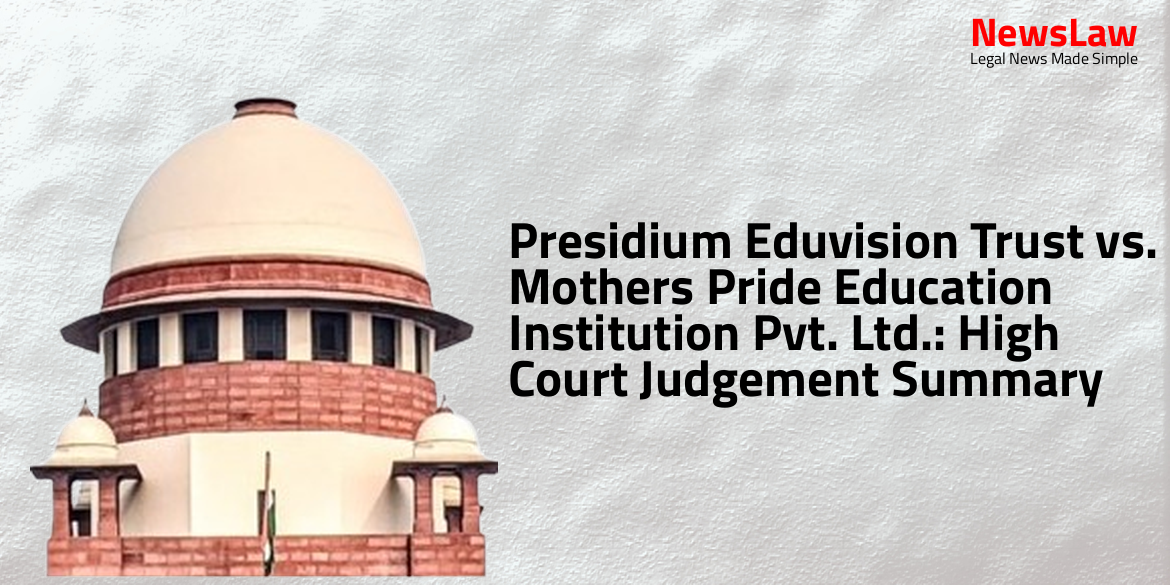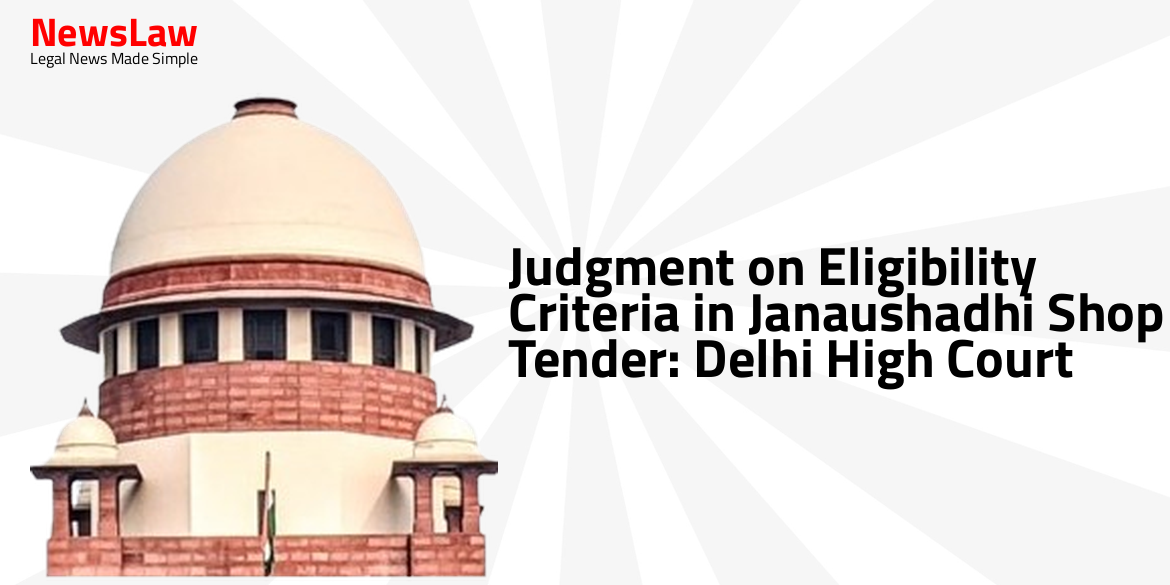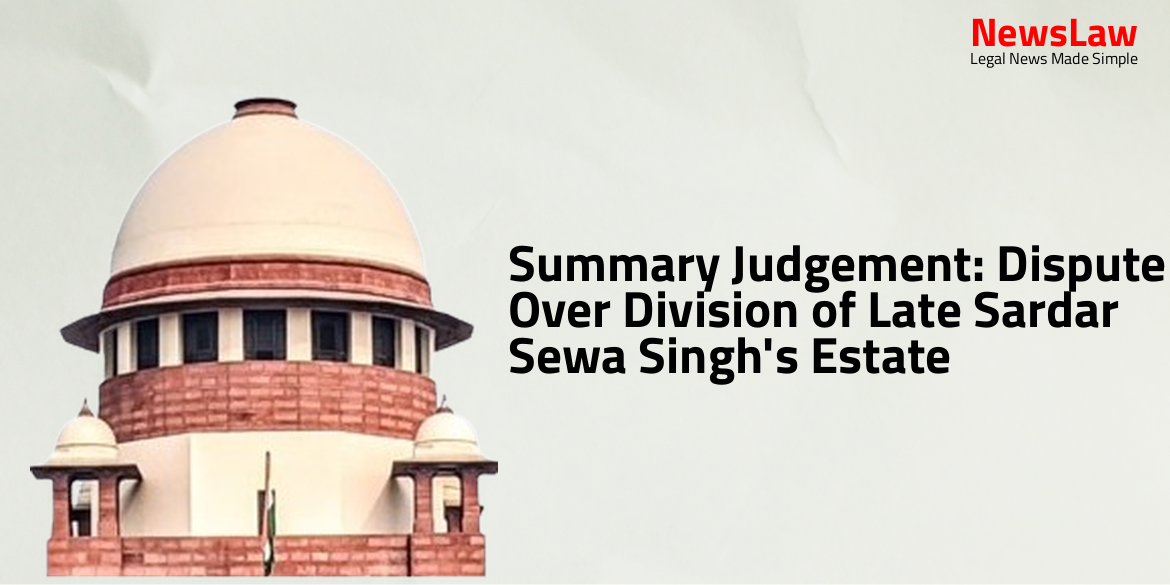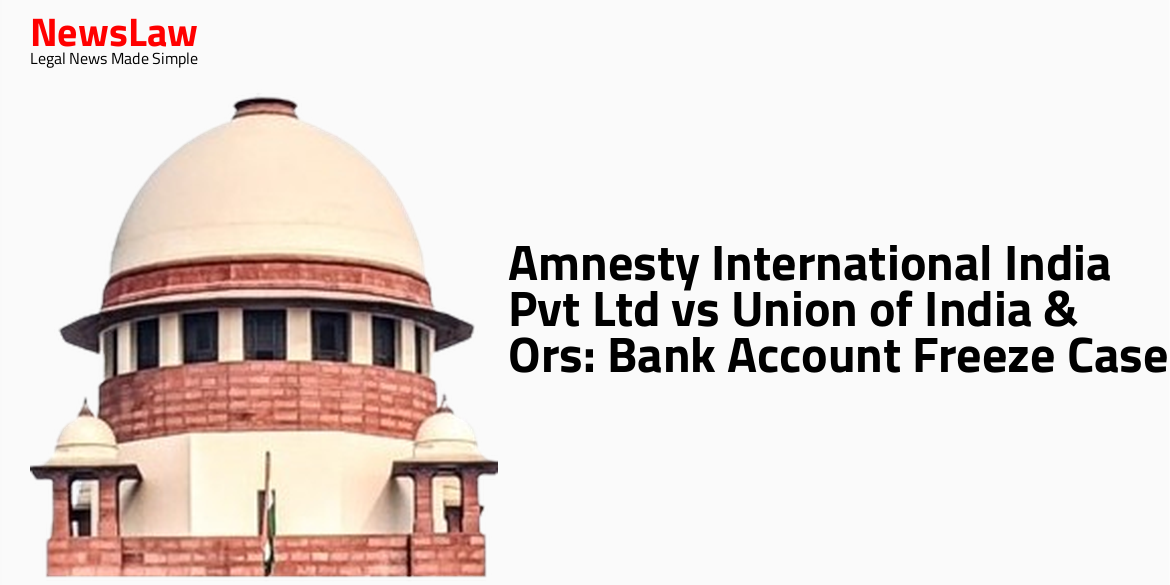The Delhi High Court has issued a significant judgement in the case involving Presidium Eduvision Trust and Mothers Pride Education Institution Pvt. Ltd. The ruling sheds light on trustees’ liability under the NI Act and its impact on their legal obligations. Dive into the details of the case and explore the nuances of the court’s decision.
Facts
- Accused nos. 1 to 10 allegedly cheated the Complainant with false representations and assurances.
- Accused nos. 1 and 2 are said to be managed by Mothers Pride Education Institution Pvt. Ltd., while accused nos. 3 to 10 are actively involved in the day-to-day affairs and business.
- Accused nos. 1 to 10 are accused of hatching a conspiracy against the Complainant and cheating them out of a significant amount.
- Accused nos. 3 to 10 personally convinced the Complainant to enter into the transaction.
- Accused nos. 1 to 10 are alleged to have gained wrongful gains for themselves through false representations.
- The Presidium Eduvision Trust, represented as the senior wing of Mothers Pride Education Institution for school-going kids, is central to the accusations.
- Involvement of the Trustees of the Presidium Eduvision Trust, including the petitioners herein, was revealed through Trust Deed and Account Opening Form.
- Accused nos. 1 to 10 misrepresented themselves and assured the Complainant about loan repayment, resulting in alleged wrongful losses to the Complainant.
- Application under Section 319 of the Cr.P.C. was filed to add petitioners as additional accused in the Complaint cases.
Arguments
- The petitioners argue that the complaints against them are not maintainable and they cannot be summoned.
- They claim that service of notice under Proviso (b) to Section 138 of the NI Act on the accused is mandatory for the maintainability of a complaint under Section 138 of the NI Act.
- They cite judgments from the Supreme Court and the High Court of Gujarat in support of their argument.
- The petitioners challenge the claim that notice under Section 138 of the NI Act served on the Trust through its Trustees fulfills the requirement of Proviso (b) to Section 138 of the NI Act.
- The application to quash their summoning as accused in the Complaint Cases was allowed by the Trial Court, prompting the petitioners to file the present petitions.
- The respondent’s counsel argues that the petitioners, though dealt with, were not known as Trustees of the accused trust.
- Citing the case of Kirshna Texport & Capital Markets Ltd. v. Ila A. Agrawal & Ors. (2015) 8 SCC 28, it is stated that notice to the Trust itself is sufficient notice to the Trustees in their individual capacity.
- Referring to the purpose of Section 319 of the Cr. P.C., it is emphasized that the real culprits should not escape unpunished.
- It is asserted that once the petitioners are identified as Trustees of the accused trust and allegedly involved in transactions with the respondent(s), they are liable under Section 141 of the NI Act.
- The High Court of Madras judgment in Abraham Memorial Educational Trust v. C. Suresh Babu, 2012 SCC OnLine Mad 2986 is cited to support that all Trustees of a Trust can be equally liable under Section 138 of the NI Act.
- Simply amending complaints to include the petitioners does not fulfill the requirements of Section 141 of the NI Act, hence the complaints against the petitioners should be dismissed.
- It is noted that the respondent(s) were unaware of the Trustees of the Trust until the Axis Bank official’s deposition.
- The legal/demand notice dated 28.01.2019 was issued to the Trust through its Trustees.
Analysis
- Section 138 of the NI Act pertains to the dishonour of a cheque due to insufficient funds.
- Proviso (b) to Section 138 requires the payee to issue a written notice to the drawer of the cheque within 30 days of being informed of the dishonour.
- Failure to make payment within 15 days of receiving the notice can lead to punishment under the Act.
- Section 141 extends liability to individuals in charge of a company if the offence is committed by the company.
- Explanation (a) to Section 141 clarifies that ‘company’ includes any body corporate, firm, or association of individuals.
- If a company commits an offence under Section 138, the individuals responsible for the conduct of its business can also be held guilty.
- Section 141 makes it clear that directors of a company can be deemed guilty if the offence is committed by the company.
- There is no merit in the argument that the respondent merely changed the number of accused in the complaints.
- The trustees of a trust can be held liable under Section 138 of the NI Act as they are in charge of the trust’s business.
- The lack of notice under Proviso (b) to Section 138 does not invalidate the complaints against the petitioners.
- Accused nos. 9, 11, and 12, as trustees of accused no. 2, are responsible for the trust’s actions.
- The notice sent to the drawer of the cheque fulfills the legal requirement, and the petitioners need not be individually notified.
- Vicarious liability under Section 141 applies to persons in charge of a company’s affairs.
- There is no need for separate notices to be issued to each trustee of accused no. 2.
- The notice issued to the drawer (accused no. 2) through its trustees satisfies the legal demand notice requirement.
- The petitioners as trustees are deemed to have received the notice served on the accused no. 2 trust.
- Section 138 clearly specifies that the notice is to be given to the drawer of the cheque, which in this case is the accused no. 2 trust.
- Notice has been sent to the accused no.2-Trust in the present Complaint Cases.
- The judgement references Proviso (b), Section 141, and Section 7 of the NI Act.
- The Supreme Court’s stance on these provisions is cited.
Decision
- The Court has not expressed any opinion on the merits of the Complaint Cases.
- Observations made in the judgment will not prejudice the petitioners in their defense in the Complaint cases.
- The petitions are found to have no merits.
- Pending applications are disposed of as they are no longer relevant.
Case Title: HARPREET SAHNI & ANR. Vs. ASHA HEMNANI (2024:DHC:3916)
Case Number: CRL.M.C.-6096/2022



